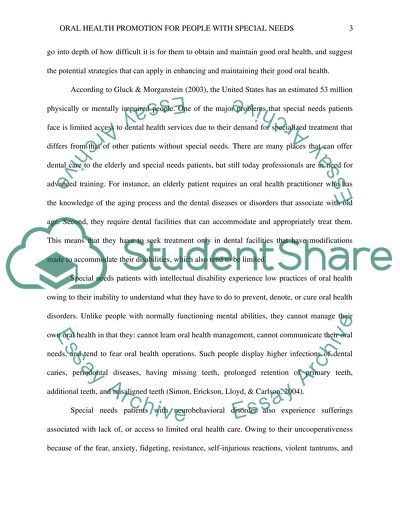Cite this document
(“Dental Hygiene - Oral Health on Special Needs Patients Research Paper”, n.d.)
Dental Hygiene - Oral Health on Special Needs Patients Research Paper. Retrieved from https://studentshare.org/health-sciences-medicine/1493220-dental-hygiene-oral-health-on-special-needs
Dental Hygiene - Oral Health on Special Needs Patients Research Paper. Retrieved from https://studentshare.org/health-sciences-medicine/1493220-dental-hygiene-oral-health-on-special-needs
(Dental Hygiene - Oral Health on Special Needs Patients Research Paper)
Dental Hygiene - Oral Health on Special Needs Patients Research Paper. https://studentshare.org/health-sciences-medicine/1493220-dental-hygiene-oral-health-on-special-needs.
Dental Hygiene - Oral Health on Special Needs Patients Research Paper. https://studentshare.org/health-sciences-medicine/1493220-dental-hygiene-oral-health-on-special-needs.
“Dental Hygiene - Oral Health on Special Needs Patients Research Paper”, n.d. https://studentshare.org/health-sciences-medicine/1493220-dental-hygiene-oral-health-on-special-needs.


